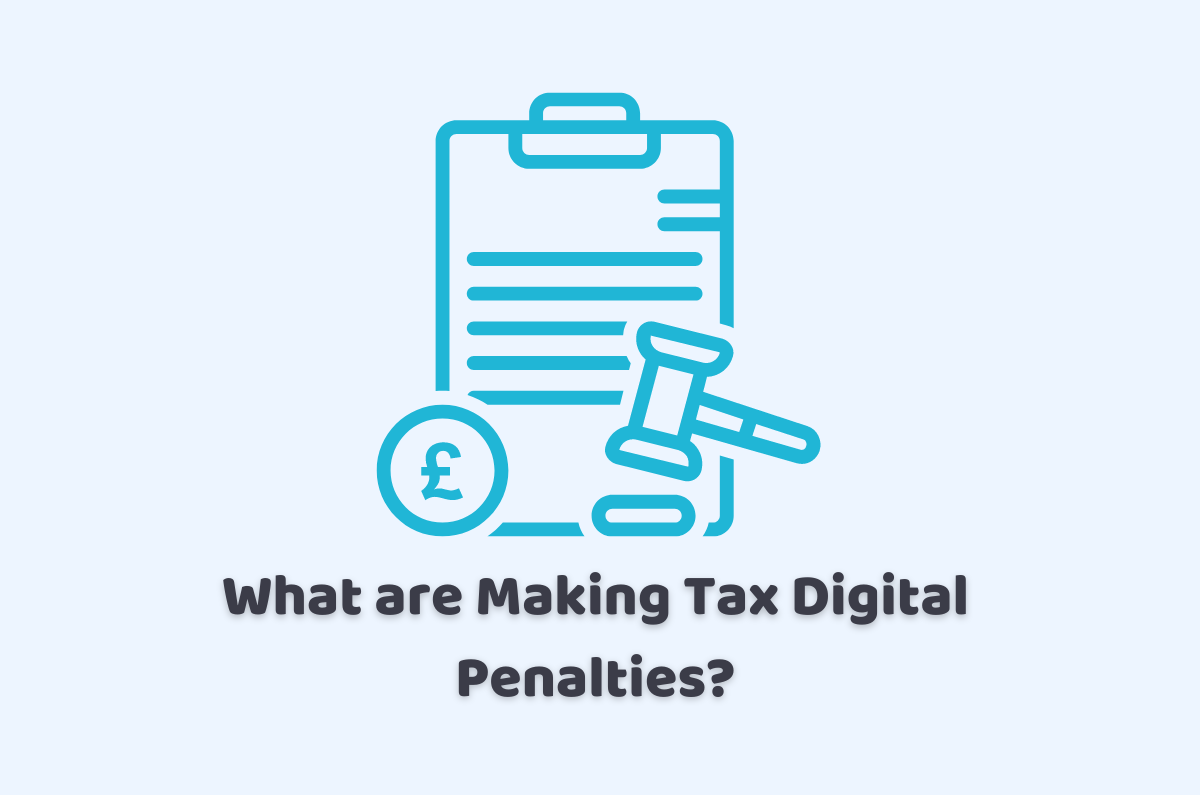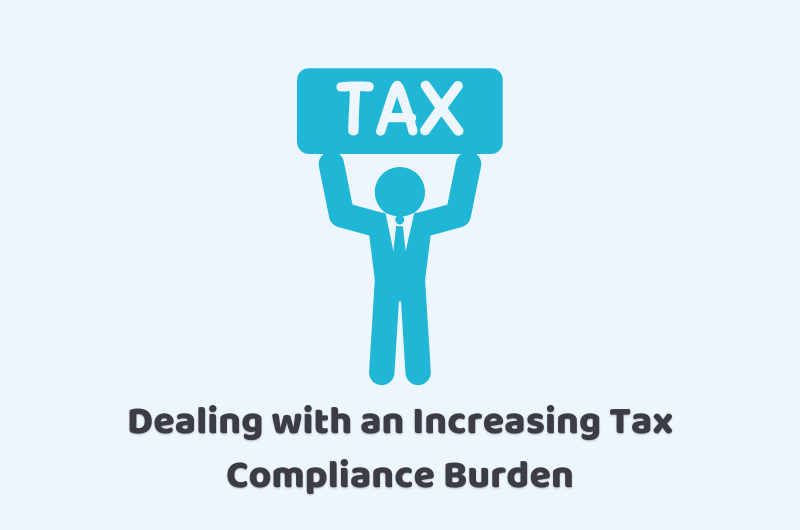
18/03/2024tax , Tax Issues , Tax News and Tips
Making tax digital penalties serves as a key tool in ensuring compliance with the new digital tax administration system being implemented in the UK. By imposing financial penalties on businesses and individuals who fail to meet the requirements of MTD, HMRC aims to encourage a smoother transition. This is to a more efficient, effective, and transparent tax system.
Get in touch with one of our experts to learn more about making tax digital penalties. We are available from 9:00 am – 05:30 pm Monday to Friday.
Objectives and Benefits of MTD
Making Tax Digital (MTD) is a digital tax administration system that is being implemented by HM Revenue & Customs (HMRC) in the UK. The objective of MTD is to modernise the UK’s tax administration system. Making it more efficient, effective, and accessible for businesses and individuals. The primary objectives of MTD are to:
Streamline the Tax Reporting Process
MTD aims to simplify the process of submitting tax returns by allowing businesses and individuals to report their income and expenses on a more frequent and regular basis. This will help to reduce the administrative burden on both taxpayers and HMRC.
Improve Accuracy and Reduce Errors
By submitting tax information in a digital format, MTD aims to minimise the likelihood of human error. Also, ensure that tax returns are more accurate. This should lead to fewer queries and disputes with HMRC, as well as a reduction in the number of penalties and fines issued to taxpayers.
Enhance Data Security and Privacy
MTD promotes the use of secure digital platforms for tax reporting. Which should help protect taxpayers’ personal and financial information from unauthorised access and cyber threats.
Encourage Tax Compliance
By making it easier for taxpayers to keep track of their tax obligations and submit accurate returns, MTD aims to encourage greater compliance with tax laws and regulations. This should help to reduce the UK’s tax gap and the difference between the amount of tax. That is owed and the amount that is collected. Which ensures that everyone pays their fair share of tax.
What are Making Tax Digital Penalties?
The primary objective of MTD penalties is to encourage taxpayers to comply with the new digital reporting requirements. As well as ensure a smooth transition to a more efficient, effective, and transparent tax system.
The key types of MTD penalties include:
Late Filing Penalties
These penalties are imposed on businesses and individuals who fail to submit their tax returns or other required information within the specified deadlines. The amount of the penalty depends on the severity and frequency of the late filing. Ranging from a small fixed penalty for a first-time offence to more significant financial penalties for repeat offenders.
Inaccuracies in Returns
Taxpayers who submit inaccurate or incomplete returns may be subject to financial penalties.
Failure to Keep Digital Records
MTD requires businesses and individuals to maintain their tax records digitally. Failure to do so may result in financial penalties. Particularly if it leads to inaccuracies in tax returns or makes it difficult for HMRC to verify the accuracy of the information provided.
Non-Compliance with MTD Requirements
Businesses and individuals who fail to comply with the broader requirements of MTD. Such as using compatible software or submitting returns through the appropriate digital channels, may also face financial penalties.
It is important to note that MTD penalties are designed to be proportionate to the severity of the offence and the taxpayer’s track record. HMRC aims to provide taxpayers with support and guidance to help them comply with the new digital reporting requirements. Penalties will generally only be imposed in cases where taxpayers have failed to engage with HMRC or make a reasonable effort to comply with their tax obligations.
Types of MTD Penalties
Several types of MTD penalties may be imposed on businesses and individuals in the UK for failing to comply with the new digital tax administration system. Taxpayers who submit inaccurate or incomplete returns may be subject to financial penalties. These penalties are calculated based on the severity of the inaccuracy and the taxpayer’s track record.
MTD requires businesses and individuals to maintain their tax records digitally. Failure to do so may result in financial penalties. Particularly if it leads to inaccuracies in tax returns or makes it difficult for HMRC to verify the accuracy.
Exemptions and Appeals
Exemptions and appeals are two essential aspects of the MTD penalties system in the UK. Providing taxpayers with opportunities to avoid or challenge penalties in certain circumstances. Certain taxpayers may be exempt from MTD penalties. If they can demonstrate that they have a reasonable excuse for failing to comply with the MTD requirements. Examples of reasonable excuses include:
Serious Illness or Injury
If a taxpayer is unable to comply with the MTD requirements due to a serious illness or injury, they may be exempt from penalties.
Death of a close family member
In cases where a taxpayer’s close family member has passed away, they may be exempt from penalties if the death affects their ability to comply with the MTD requirements.
Severe Weather or Other Unforeseeable Circumstances
In some cases, severe weather or other unforeseeable circumstances may prevent a taxpayer from complying with the MTD requirements, leading to an exemption from penalties. Taxpayers who have been issued with an MTD penalty and believe that it is incorrect or unfair have the right to appeal the decision. The appeals process typically involves the following steps:
Contacting HMRC
The taxpayer should contact HMRC within 30 days of receiving the penalty notice to discuss their concerns and express their intention to appeal.
Submitting an appeal
If the taxpayer is unable to resolve the issue with HMRC. They can submit a formal appeal to the First-tier Tribunal. The appeal must be submitted within 30 days of receiving the penalty notice. It must include a detailed explanation of why the taxpayer believes the penalty is incorrect or unfair.
Impact on Businesses and Individuals
The implementation of MTD penalties has both positive and negative impacts on businesses and individuals in the UK.
Encourages Compliance
The threat of financial penalties can serve as a strong incentive for businesses and individuals to comply with the MTD requirements.
Reduces Errors and Inconsistencies
By digitising tax records and submitting returns through MTD-compliant software, businesses and individuals can minimise the risk of human error. This ensures that their tax information is accurate and up-to-date.
Improves Record-Keeping
MTD requires businesses and individuals to maintain their tax records digitally. Which can lead to improved record-keeping practices and better financial management overall.
Learning Curve
Adapting to MTD may require a learning curve for businesses and individuals. As they become familiar with new digital tools and processes. This may lead to temporary inefficiencies and errors as they adjust to the new system.
Conclusion
The implementation of making tax digital penalties has both positive and negative impacts on businesses and individuals. While the penalties serve as a strong incentive for compliance and can lead to improvements in record-keeping and accuracy, they may also impose additional administrative burdens and costs on taxpayers.
Reach out to our expert professionals to get your queries answered instantly. We would love to come up with the best possible solutions to your queries about making tax digital penalties.
Disclaimer: The information about making tax digital penalties is provided in this article including text and graphics. It does not intend to disregard any of the professional advice.



